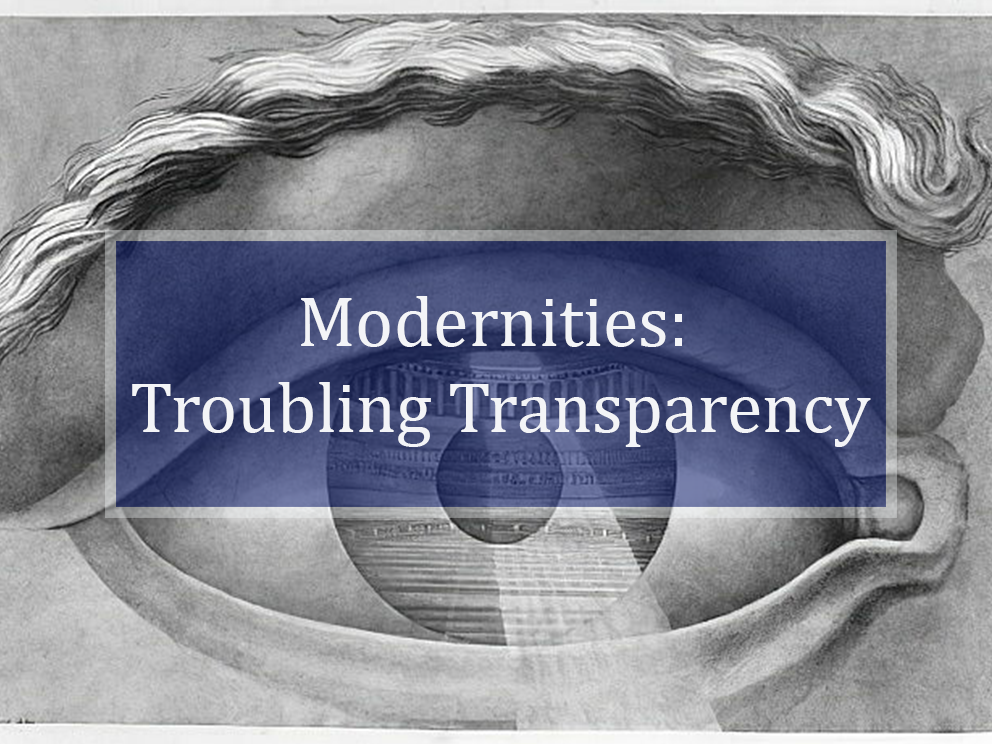HUMS 437, Modernities: Troubling Transparency

Transparency is the metaphor of our time. Whether in government or corporate governance, finance, technology, health, or the media–it is ubiquitous today, and there is hardly a current debate that does not call for more transparency. But what does this word actually stand for and what are the consequences for the life of individuals? “Know thyself” were the words inscribed above the entrance to the temple of Apollo at Delphi. In the modern age, however, the demand for self-transparency has been given a completely new foundation, since it is no longer regarded merely as a moral duty of the individual toward himself, but as a normative prerequisite of democratic societies. The seminar reconstructs the success of this category on the basis of relevant classical texts, in both epistemological-individual and social-theoretical-social perspectives (important authors are Augustine, Jean-Jacques Rousseau, Immanuel Kant, Jeremy Bentham, Georg Simmel, Jean-Paul Sartre, Michel Foucault). The aim is to critically question this consensus value of modernity, and to inquire into its internal dialectic. With a view to contested phenomena of the present (social networks, surveillance society, post-democracy), we examine under which conditions transparency enables emancipatory effects and where, on the other hand, it generates conformism and threatens a pluralist society. As an attempt to map an alternative genealogy of modernity, the seminar provides some overview of a range of canonical modernist theorists and reads them in a new light.